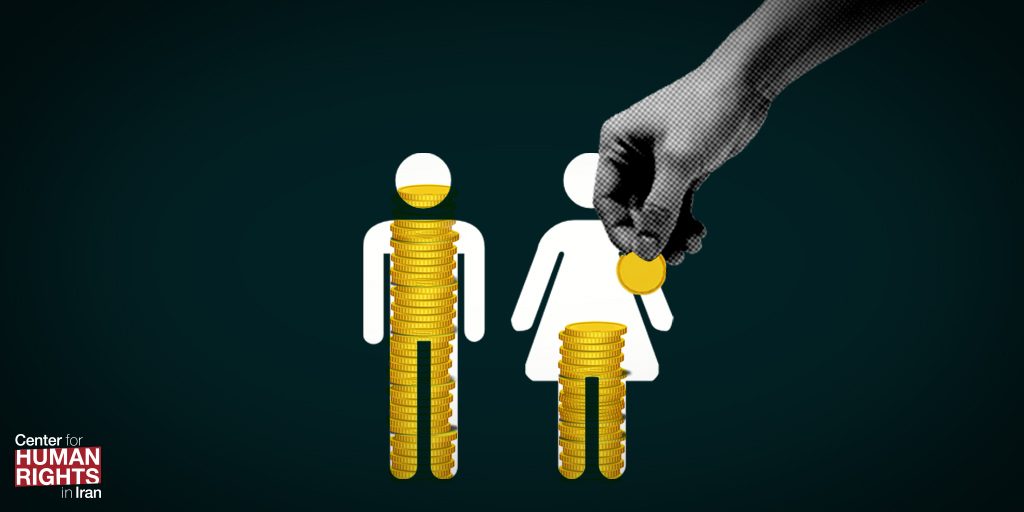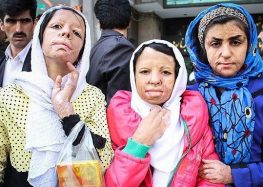Blood Money Paid for a Woman in Iran Is Still Half That Paid for a Man, Despite New Ruling

Discriminatory Law Remains on the Books, New Law Just Has State Pay to Make Up Difference
Following news in Iran on July 2, 2019, declaring equality between men and women in blood money (financial compensation paid to the family of someone who has been killed or to the victim who has been injured), many people incorrectly assumed that the existing discriminatory law, which assigns blood money (“diya”) to a woman victim at half the amount of that of a man, had been abolished.
However, the blatantly discriminatory law has not been changed. The Guardian Council, the body charged with vetting all legislation in Iran for conformity with Islamic law, has refused to nullify it because it has its roots in Islamic theology and the Quran.
Instead, the Supreme Court in its recent ruling did not declare equality in blood money but rather instructed the difference in blood money for women to be paid out by the state’s Fund for Bodily Injuries.
Therefore, if someone has to pay blood money for intentional or unintentional physical harm to a woman, the amount paid will still be half the blood money as that paid for a man. The family of the female victim however, will receive the same amount of blood money as a man would, but only because the difference will be paid from the publicly-funded trust.
Eager to correct the misinterpretation, reported in the media, that the government had changed the law on diya, Judiciary Spokesman Gholam-Hossein Esmaili said on July 9: “Certain matters have been raised concerning equality in blood money for women and men involved in auto accidents which have nothing to do with Sharia Law.”
He added: “[The recent ruling] is a matter that concerns contracts between insurers and insurance companies but the media have been portraying it as something else. Perhaps if the Culture and Islamic Guidance Ministry takes positive steps to correct this behavior [i.e. the media incorrectly depicting this as the equalization of blood money payments in Iran] we would no longer be witnessing such unrealistic interpretations.”
New Ruling Perpetuates Gender-Based Discrimination
In its ruling, the Supreme Court judges essentially devised a way to circumvent a grossly discriminatory law without triggering opposition from the conservative Guardian Council. But it comes at a price: Using public funds that come in from judicial fees and traffic fines to save a discriminatory law.
Indeed, the inequality between men and women in Iran, which is the basis of many Islamic theological principles and applied as law in Iran in such matters as witness testimony, divorce, custody, inheritance and blood money, remain.
Compensating for the difference in blood money reduces the discriminatory impact but it does not change the cultural and social norm that still protects the state’s underlying premise of inequality between men and women. In this way, it encourages the continuation of discrimination against women.
In addition, making the perpetrator financially liable for only half the blood money for injuries against a woman compared to a man, effectively makes women easier targets of potential crimes.
Ruling Was Introduced in 2013 but Not Consistently Applied or Enforced
The payment of the difference between blood money for men and women from public funds was originally introduced—but not universally enforced—with the passage of the latest version of Iran’s Islamic Penal Code in 2013.
According to Article 551, “In all crimes that the victim is not a man, the difference in blood money up to the ceiling set for a man will be paid by the Fund for Bodily Injuries.”
The fund was established in 1968 to pay damages to victims of auto accidents. In 2011, the fund became an independent institution whose budget comes from insurance premiums, judiciary fees and traffic fines, all of which come from people’s pockets.
With the new ruling, the Supreme Court stepped in to enforce the law because lower courts were issuing inconsistent rulings. Some courts were ruling that payment of the difference in blood money should be paid for women victims only in case of death, while other courts were awarding the full blood money for non-fatal physical injuries as well.
In its May 21, 2019, session, the Supreme Court ordered all courts to follow its universal guidelines and declared: “In all crimes against women, whether in case of death or bodily injury, the difference in blood money should be paid by the said fund.”
According to the Islamic Penal Code, if the injuries are not serious and the blood money to be paid is less than a third of the full diya amount that would be calculated for the death of a Muslim man, the compensation to men and women victims will be equal. The inequality is instituted in cases that break the one-third blood money threshold.
One of the negative legal outcomes of awarding women the difference in blood money is that it could lead to an increase in executions. Convicted murderers are executed after they pay blood money to the victim’s family. Therefore, blood money payments by the Fund for Bodily Injuries would be facilitating executions.
Meanwhile, according to Article 10 of the Mandatory Insurance Law ratified in 2016, insurance companies are required to “pay damages to victims without regard to gender or religion, up to the full amount of the insurance contract.”



